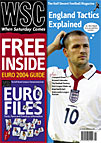 As a teengager Neil Forsyth stood on a terrace which had seen European semi-finals and a final and where, amid the swearing, the snowballs and the cheers, it turned out that everybody knew his name
As a teengager Neil Forsyth stood on a terrace which had seen European semi-finals and a final and where, amid the swearing, the snowballs and the cheers, it turned out that everybody knew his name
Where in Europe lies the road that plays host to two European Cup semi-finalists at two separate home grounds? The answer is Dundee, where Dundee’s Dens Park Stadium lies just 100 yards from Dundee United’s Tannadice Park. In April 1984, United raced to a 2-0 first-leg lead against Roma at Tannadice before capitulating in the return leg amid intimidation and appalling refereeing, leaving Liverpool to defeat the Italians in the final. And Dundee? Ach, who cares?
Supporting Dundee United means many things. There is the adoption of the “Arab” handle, a magnificently innocent moniker that would be unthinkable in more culturally diverse cities. There is a history of heartache: we won a Scottish Cup final at the seventh attempt and, in addition to the European Cup semi-final defeat, also lost the 1987 UEFA Cup final to Gothenburg. It also means an illogical hankering for a matchday experience far removed from today, when the home fans are dispersed through standard seated stands, distinctive only by their tangerine livery.
When I began my Tannadice pilgrimages in the mid-1980s, it was very much a stadium of its time. Running along the north touchline was the Sandeman Street terracing, topped with a roof bought with the proceeds of Ray Stewart’s 1980 transfer to West Ham. Behind the goal to the east was the unappealing Arklay End, a low open terrace kindly given to away fans, sat between the pitch and some allotments. The stand was a confusing structure, hugging the corner flag then creeping halfway down the southside touchline, leaving a gap filled with a sunken terrace that wouldn’t have looked out of place at the Battle of the Somme. And to the west lay the promised land, the Tannadice Shed.
To a Dundee schoolboy of United persuasion, the Shed was a phenomenon held in an awe equal to any adolescent rite of passage. It was spoken of in reverential tones, with visits to it regaled at great length to willing playground audiences. When I started going, it did not let me down. Chiefly, there was the singing that grew from a few regular voices at the back to deafening waves that rebounded off the corrugated iron roof. I’d join in lustily with my impressively high-pitched voice that caused such discomfort to my elder brother and his friends.
Equally impressive to my younger self was the swearing. Everyone swore in the Shed: women, children, the police, even the old ladies on the pie stall. There was one man who was thrown out of the Shed every single game for swearing, such was his dedication, a rumour I confirmed with my own eyes. He was a small man with permed hair and I watched as the stewards trudged wearily over after a 20-minute salvo that had left him marooned in a pocket of space as even the Shedboys cowered from his invective.
An uncompromising edge would be added to events at every opportunity. In the depths of a Dundee winter, when the pitch would be cleared in the morning but the snow left on the grass behind the Shed, a hail of snow balls would rain on the photographers huddled behind the goal until they were forced to evacuate, exchanging gestures with the ecstatic mob. Their explanatory phone calls to angry picture editors would have been a joy to hear.
In moments of celebration, the Shed would be mobilised with the chant “Let’s all do the Shedboys’ dance”, followed by a general bobbing about. These sways regularly ensnared fans against the steel armrests. Not long after Hillsborough, I was terrifyingly caught in this manner and the memory sticks in my mind when the argument for reintroducing terracing is made. A reintroduction of the spirit of the Shed, which was seated in 1997, would provoke no such doubt, despite the ingrained humour being responsible for one of my greatest humiliations.
I was standing proudly in the Shed one day when I heard some hushed hilarity behind me, followed by a hearty chorus of “One Neil Forsyth, there’s only one Neil Forsyth”. I couldn’t believe my ears and neither could my brother. Had they seen me play, perhaps heard of my burgeoning Sunday League career? I couldn’t concentrate. Back home, I made the unfortunate decision to tell my parents before retiring victorious to my room where I took off my scarf to be met with an awful truth: the name tag my mother had added in preparation for a trip to Scout camp.
From WSC 209 July 2004. What was happening this month